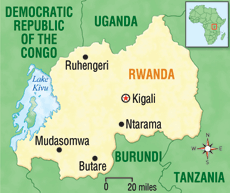Work continues to mainly involve showing up once the morning meeting is done at the Health Center and asking “how can I help?” This has lead to varying results, as Ali has been shown a complicated birth and two dead fetuses, while typically the fare is much less exciting (and grotesque!) Unfortunately this also means I get saddled with such mundane tasks as counting pills in the pharmacy or recording names in the registry while a nurse draws blood for VCT (Voluntary Testing and Counseling), but it also gives me to the opportunity to watch and listen and ask questions. The stories of the couples coming in for VCT vary widely, and often tend towards the sad, like the woman who brought her granddaughter in for testing (both the girl’s parents had died.) The grandmother herself had had a tough life from the very beginning- her own parents had died when she was a baby, and she was deserted by a banana tree where a dog had eaten her toes and one of her thumbs. On the flip side, one of my favorite stories is about a couple in which the man had just recently been released from prison after 15 years. Given the time they had spent apart, the couple wanted to be tested before they slept together. No matter the reason for their separation, the joy in their eyes to be back together and to be told they were both negative was heartening to see.
Over the past couple of weeks, I finally got to meet all of the AIDS Relief (the organization I work for) staff in the region. The doctor in charge came to our clinic to check up on things and gave Ali and I a list of things to watch for at the clinic (ex. are certain procedures being followed when a HIV+ woman gives birth?) At the invitation of some of the staff, the Peace Corps Volunteers who work for AIDS Relief in our region spent the day with them in Cyangugu getting to know one another, swimming in the hotel pool, and enjoying fish brochette with a view of the DRC border.
Subscribe to:
Post Comments (Atom)


No comments:
Post a Comment